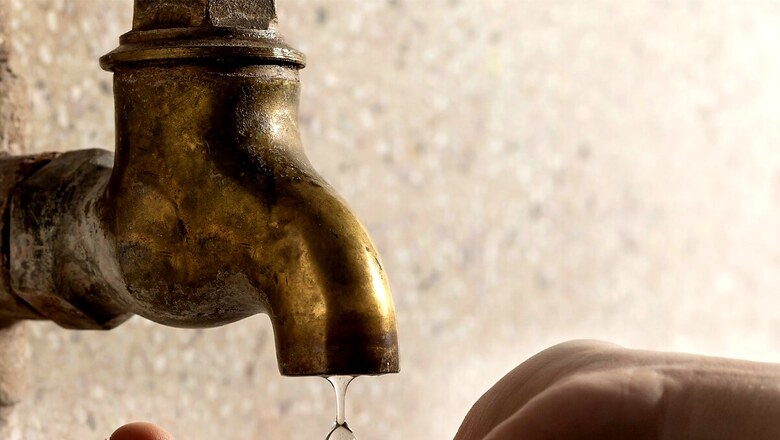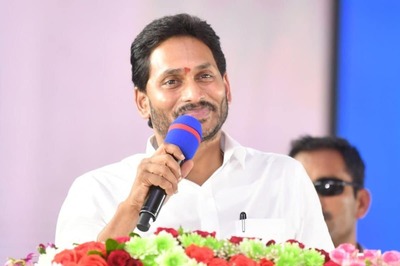
views
Nearly 77.6% of rural households in India now have access to clean and safe tap water, the government told Parliament on Thursday, as the deadline for 100% coverage under its flagship Jal Jeevan Mission draws near.
The nation-wide scheme Har Ghar Jal was announced in August 2019 with an estimated outlay of Rs 3.6 lakh crore ($43 billion) to deliver at least 55 litres of water per person per day to every rural household by December 2024. So far, it has reached as many as 15 crore households out of the total 19 crore functional rural households, Minister of State for Jal Shakti V Somanna informed the Parliament. The number is up from just 3.23 households when the scheme was launched.
JUST AROUND 50% COVERAGE IN FOUR STATES
Eleven states and Union Territories – Goa, Andaman & Nicobar Islands, Daman-Diu & Dadra and Nagar Haveli, Telangana, Puducherry, Punjab, Haryana, Himachal Pradesh, Gujarat, Arunachal Pradesh and Mizoram – have already reported 100% tap water coverage in all villages, though the verification process is still underway in some of them.
Bihar (96%) and Uttarakhand (95%) are also surging ahead, along with big states like Tamil Nadu, Maharashtra and Uttar Pradesh, which are covered over 84%. However, the implementation lags in four states – West Bengal (50.9%), Rajasthan (51.5%), Kerala (53.3%) and Jharkhand (53.9%) where nearly half of the project work remains unfinished. Madhya Pradesh, too, is at 63%.
“The government of Rajasthan has said that it will saturate all eligible rural households with tap water connections by December 2026. The Centre has held joint review meetings with the state government and undertaken field visits to highlight areas of concern such as need to strengthen project planning, implementation, monitoring and to expedite the implementation to make provision of tap water supply to rural all households,” said Somanna.
Responding to concerns over unavailability of canal water for the scheme, he said there was no known instance where tanks constructed and pipework network remains unutilized. “The JJM schemes based on canal water are planned as per availability of water from sources and formal reservation from the Water Resources Department,” he remarked.
CHALLENGES IN ACQURING LAND IN KERALA
However, the government has attributed the delay in Kerala to the difficulties in acquiring land for the new components of the water supply scheme. Kerala has now sought extension of a period for awarding works up to August 16.
“The state government has also informed that various clearances from forest, NHAI, Railways, Ministry of Road & Transport Highways are pending with respect to drinking water projects/schemes which have also affected the implementation of JJM in the state. The Department has setup a special cell for coordinating and following-up with these agencies/ authorities for timely clearances,” said the minister, adding that they have not received any request for extension of JJM in the state so far.
CONCERNS OVER WATER QUALITY IN SCHOOLS
Andhra Pradesh MLA YS Avinash Reddy raised concerns over several Aanganwadis and schools reporting high levels of chlorine and other bacterial contaminations in the tap water.
Responding to the question, the Jal Shakti minister said that the ministry has advised the state governments to conduct water quality tests using Field Test Kits (FTKs) for common parameters along with area-specific parameters, including arsenic and fluoride at school, Anganwadis and Gram Panchayat (GP) level for early identification of water borne risks.
“Water remains a state subject, and the responsibility of planning, approval, implementation, operation, and maintenance of drinking water supply schemes, lies with State/ UT governments. The states have also been advised to undertake testing of water quality on a periodic basis and take remedial action wherever necessary, to ensure that the water supplied to households, schools, Anganwadi centers is of prescribed quality,” said Somanna.
As of July 23, Rs 12,592 crore have been drawn by the states/UTs out of the total allocation of Rs 69,926 crore this year under the scheme being jointly implemented by the Centre and state governments.




















Comments
0 comment